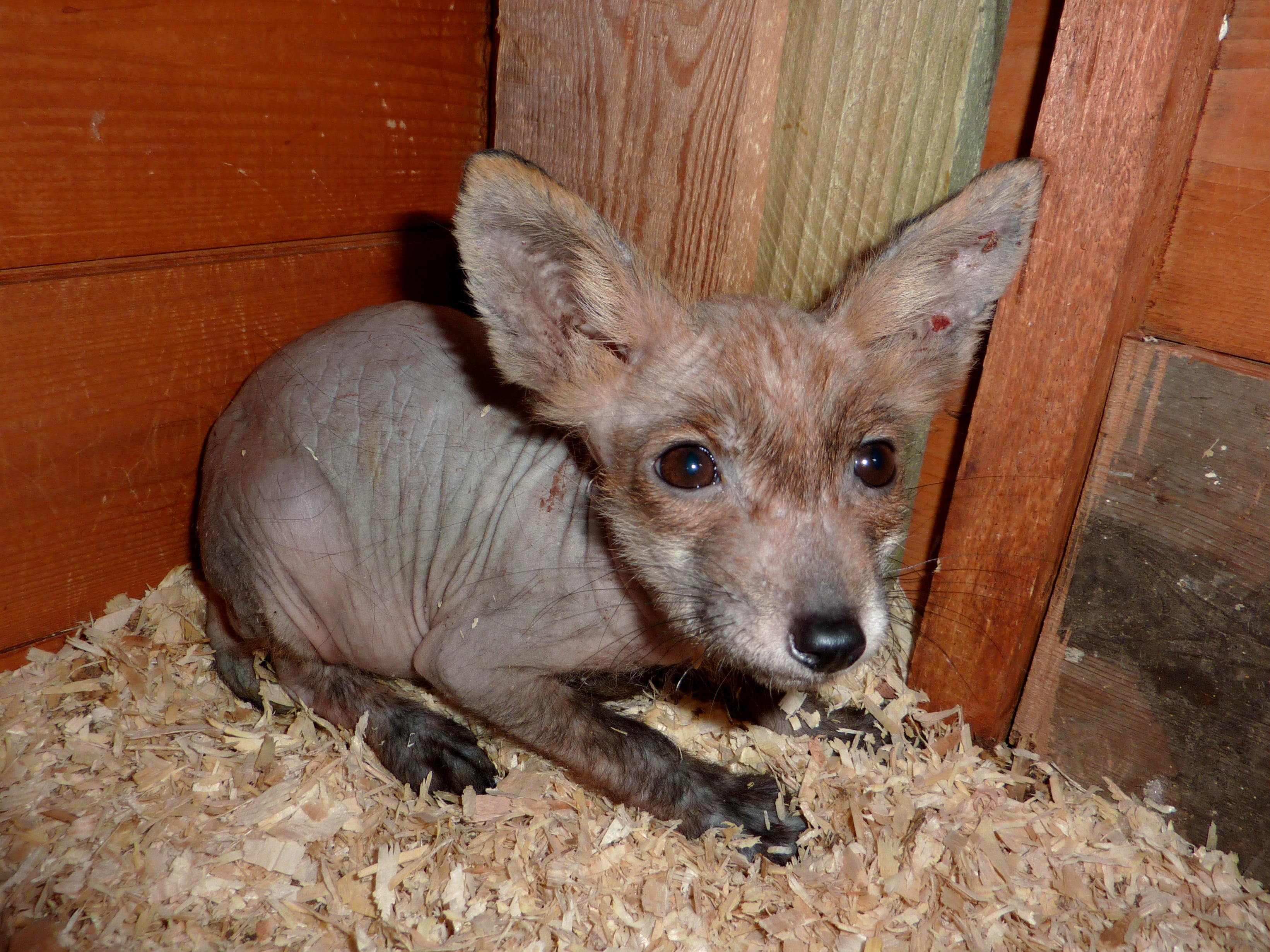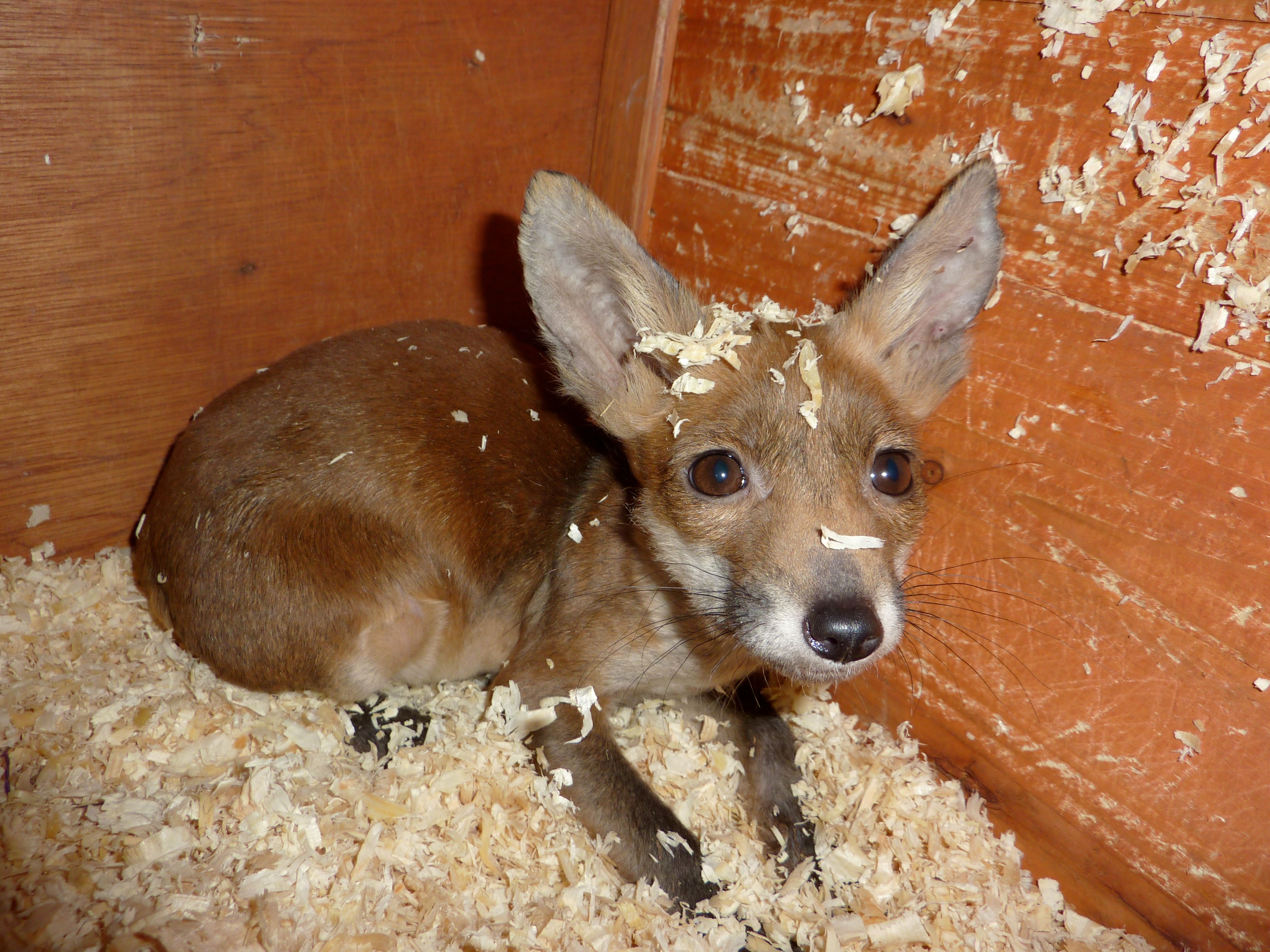Sarcoptic Mange
In the UK, sarcoptic mange (sarcoptes scabeii) is the single most common infection in foxes.
Mange, or scabies, is a parasitic mite with numerous sub-species that infect different animals. That which causes canine or dog mange (sometimes inaccurately referred to as fox mange) differs from that which produces similar infections in other animals such as cats, horses or in humans.
Mange mites need a host on which to feed and breed, but they may survive in the environment for a considerable period and, being microscopic, are impossible to locate.
Some folk, concerned about mange affecting their dogs, suppose the answer is to remove infected foxes from the area. This is simplistic and misses the point, as it fails to address the original reservoir of infection.
Rather than removing an infected fox – treat it or seek treatment for it. Otherwise, the fox that will inevitably take over the vacant territory may contract mange from the same point the original fox was infected. Result – no result!
To obtain details of wildlife rescue groups in your area, check the following national wildlife rescue registers:
https://www.helpwildlife.co.uk/ or https://www.bwrc.org.uk/rehabilitators/
For the London area we would particular suggest
https://www.foxangelsfoundation.org/


Can Mange be treated in the wild?
Yes, is the simple answer, though we do not recommend veterinary medications be fed in the wild due to toxic dangers to pets and other wildlife. In any event, these can only be obtained on prescription from a vet, and it is illegal for charities such as ourselves to dispense veterinary medications.
If it can’t be treated in the wild, how do I catch the fox to receive help?
We recommend admitting foxes for veterinary treatment if they are suffering more than 40% visible mange. This can be achieved by cage trapping in association with your local wildlife rescue group. However, cage trapping is by no means guaranteed; foxes are suspicious, and it is not easy to persuade them to enter a cage trap. You may, therefore, have only one other option and that is to support their recovery onsite by feeding complementary remedies that are not subject to licencing.
What are these, and where can I obtain them?
"Over a period of 30 years, we have seen spectacular recoveries achieved by use of two natural remedies that are harmless to other animals and the environment: arsenicum and sulphur, and psorinum.
The remedies should be fed on a daily basis over a three week period in non-fatty food - meat can prevent absorption through the mucus membranes. The best form of treatment is by Sucrose 6 tablets, 30c potency, per day and general rule of thumb is three tablets or three drops per day per animal."
We would recommend arsenicum and sulphur as the most provenly effective, but advice is that psorinum is an intercurrent – a booster – that can be interspersed with arsenicum and sulphur if it doesn’t appear to be having the desired effect.
Our own view is that positive results with complementary medications are less convincing on foxes suffering more than 40% visible mange but, whatever the result, and given that wildlife is not generally co-operative, it may be the only option to you in the absence of capture.
Both medications are available from Helios Pharmacy – 01892 537254 - https://www.helios.co.uk - and Pet Perfection – 01689 856361 - https://www.petperfection.net/ can provide psorinum.
Following treatment, should the animal continue to deteriorate or fail to show signs of recovery, it may be appropriate to contact your local wildlife rescue group to trap and treat it in-house with conventional medications.
Will my pets be affected?
Mange is a canine mite which can affect dogs. It is, however, rare these days, as most dogs regularly receive flea treatments that indirectly guard against mange mites. Other species – including humans - may experience a mild, short term toxic reaction, not unlike flea bites and with a sensation like nettle rash, but the parasite cannot successfully breed on most species other than canines.
To obtain details of wildlife rescue groups in your area call 01892 824111 or check the following national wildlife rescue registers - https://www.helios.co.uk/en/shop/arsen-alb-sulphur or https://www.bwrc.org.uk/rehabilitators/
